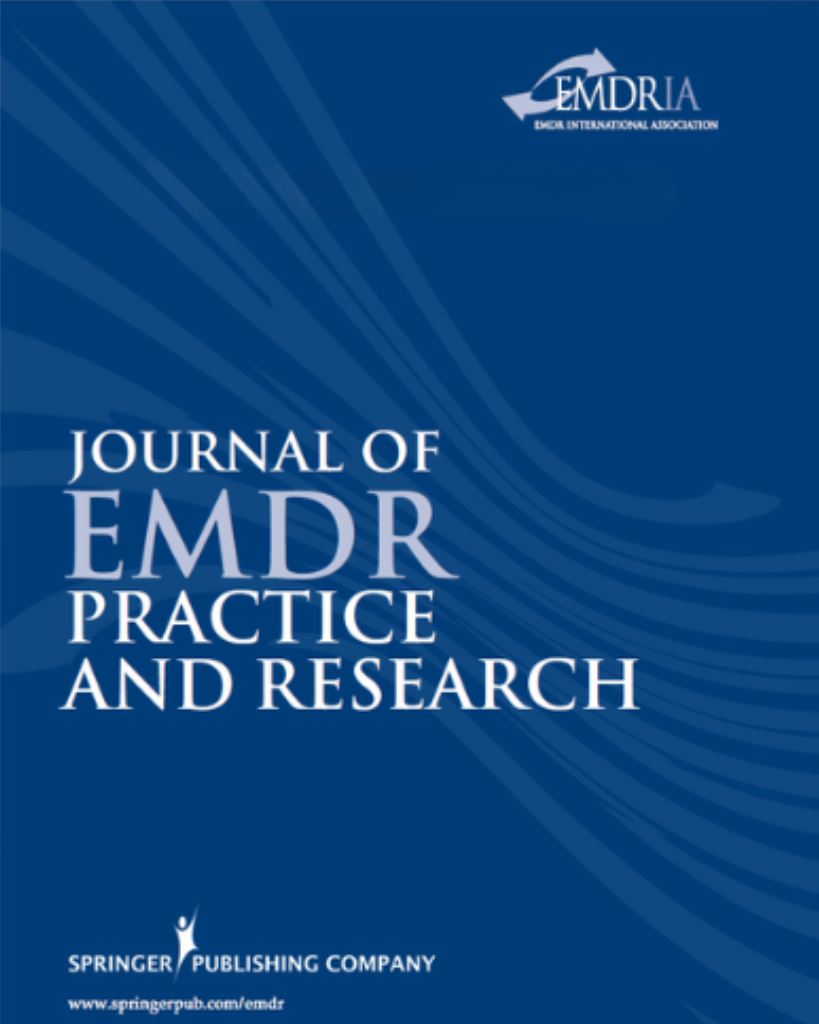Psychophysiological Changes During EMDR and Treatment Outcome
Study investigating whether psychophysiological changes during EMDR is related to subjective and objective reduction of PTSD symptoms.
Article Abstract
“This study was designed to investigate the question of whether psychophysiological changes during EMDR sessions are related to subjective and objective reduction of PTSD symptoms. During-session changes in autonomic tone in relation to session-to-session changes of subjective stress, trauma-related symptoms, and psychophysiological reactions during a traumatic reminder were investigated in 10 patients suffering from single-trauma PTSD. Treatment duration followed each patient’s individual needs and ranged between 1 and 4 sessions, resulting in a total of 24 EMDR treatment sessions from which psychophysiological data were completely recorded. Treatment with EMDR was followed by a significant reduction of trauma-related symptoms, elimination of the PTSD diagnosis in 8 of the 10 participants, as well as by significantly reduced psychophysiological reactivity to an individualized trauma script. Psychophysiological dearousal in sessions correlated significantly with decrease in script-related reactions in heart rate and parasympathetic tone, and with changes in subjective disturbance. Our results indicate that information processing during EMDR is followed by during-session decrease in psychophysiological activity, reduced subjective disturbance and reduced stress reactivity to traumatic memory.”
—Description from publisher
Article Access
Open Access
Sack, M., Hofmann, A., Wizelman, L., & Lempa, W. (2008). Psychophysiological Changes During EMDR and Treatment Outcome. Journal of EMDR Practice and Research, 2(4), 239–246. https://doi.org/10.1891/1933-3196.2.4.239
About the Journal
The Journal of EMDR Practice and Research is a peer-reviewed publication devoted to integrative, state-of-the-art papers about Eye Movement Desensitization and Reprocessing. It is a broadly conceived interdisciplinary journal that stimulates and communicates research and theory about EMDR, and their application to clinical practice. The Journal of EMDR Practice and Research is the Official Publication of the EMDR International Association.
Date
November 1, 2008
Creator(s)
Martin Sack, Arne Hofmann, Leah Wizelman, Wolfgang Lempa
Topics
PTSD
Extent
8 pages
Publisher
Springer Publishing Company
Rights
Copyright © 2008 EMDR International Association
APA Citation
Sack, M., Hofmann, A., Wizelman, L., & Lempa, W. (2008). Psychophysiological Changes During EMDR and Treatment Outcome. Journal of EMDR Practice and Research, 2(4), 239–246. https://doi.org/10.1891/1933-3196.2.4.239
Series
2
Installment
4
Audience
EMDR Therapists
Language
English
Content Type
Peer-Reviewed
Original Source
Journal of EMDR Practice and Research
Access Type
Open Access





